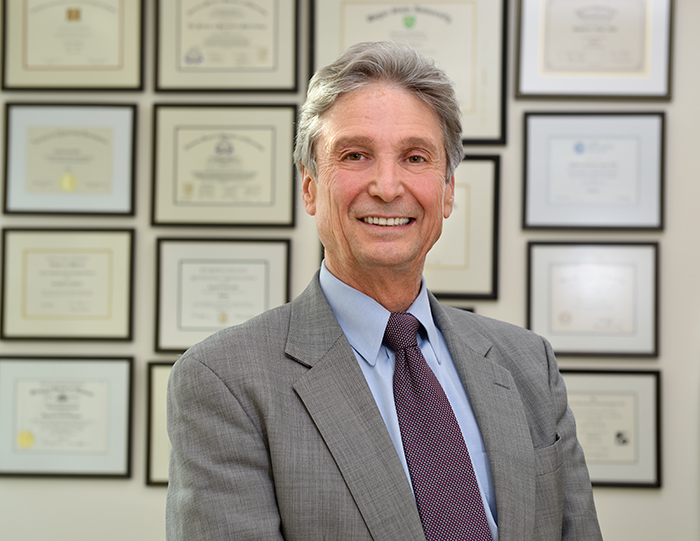
BIOGRAPHY
Richard Leach, M.D. received his medical degree from Wayne State University School of Medicine, and completed Residency training in Obstetrics and Gynecology at William Beaumont Hospital. He completed his Fellowship in Reproductive Endocrinology and Infertility at the Mayo Clinic in 1990. Dr. Leach is Board Certified in Obstetrics and Gynecology with subspecialty certification in Reproductive Endocrinology and Infertility. He is a Fellow in the American College of Obstetrics and Gynecology, the American College of Surgeons and the American College of Clinical Endocrinologists. Dr. Leach serves on several national committees as an expert on in-vitro fertilization (IVF), including the Society of Assisted Reproductive Technologies. He is a national expert on early implantation, and his research is supported by the National Institute of Health to study how this can cause infertility. He is a recognized member of the Best Doctors in America for his contributions to the practice of IVF.
RESEARCH
- HBEGF: A Role in Human Implantation. The synchronous development of the endometrium during early implantation in women is highly dependent on embryonic-maternal signaling. We have shown that HB-EGF is secreted by the luminal epithelium of the human uterus during interval of implantation and is regulated in a spatiotemporal pattern in the endometrium by ovarian steroids estrogen and progesterone in the baboon. We discovered that HB-EGF stimulates human placenta villous explants to invade matrix at an accelerated rate by binding both HER-1 and HER-4 tyrosine kinase receptors. In collaboration with Randy Armant, PhD, from Wayne State University we are studying more closely the underlying molecular mechanisms that regulate HB-EGF expression and processing and its down stream control of trophoblast invasion and apoptosis.
- HBEGF: A Role in Abnormal Human Implantation. We have shown that HB-EGF is absent in the placentas form women with preeclampsia. The cell invasion-promoting and antiapoptotic activities of HB-EGF place this molecule at a point of convergence of the pathophysiological abnormalities associated with early pregnancy loss: namely inadequate trophoblast invasion and excessive cell death. As a member (Project 4) of the U54 SCCPR (HD040093-0) centered at University of Illinois at Chicago (PI Asgi Fazleabas) we are studying how oxidative stress causes the dysregulation of trophoblast HB-EGF processing, invasion and apoptosis. Of significance, we can recapitulate the trophoblast phenotype found in some early pregnancy loss by in vitro exposure of trophoblast to hypoxia-reoxygenation.
- Novel Human Implantation Genes that are Over-Expressed in Cancer. The human and mouse genome sequencing efforts are providing us with an opportunity to use species similarities as gene-function discovery tools. We have employed transcript profiling to characterize extra-embryonic trophoblast tissues during early human implantation. A cDNA library isolated from the ectoplacental cone region of 7.5 dpc staged mouse embryos was probed with cDNA from hypoxic cultured human trophoblast cells. This stage correlates to 20 days (Carnegie Stage 9) of human embryo development and cannot readily be studied for ethical and technical reasons. In total, 21 known and 9 unknown genes induced or attenuated in trophoblast cells after hypoxic treatment were identified. In collaboration with Steven Krawetz, PhD, from Wayne State University, we have focused on the characterization of OVCOV1 (ovarian cancer over expressed 1) since it is over expressed in ovarian cancer tissue. We are proceeding with studies to elucidate its function.